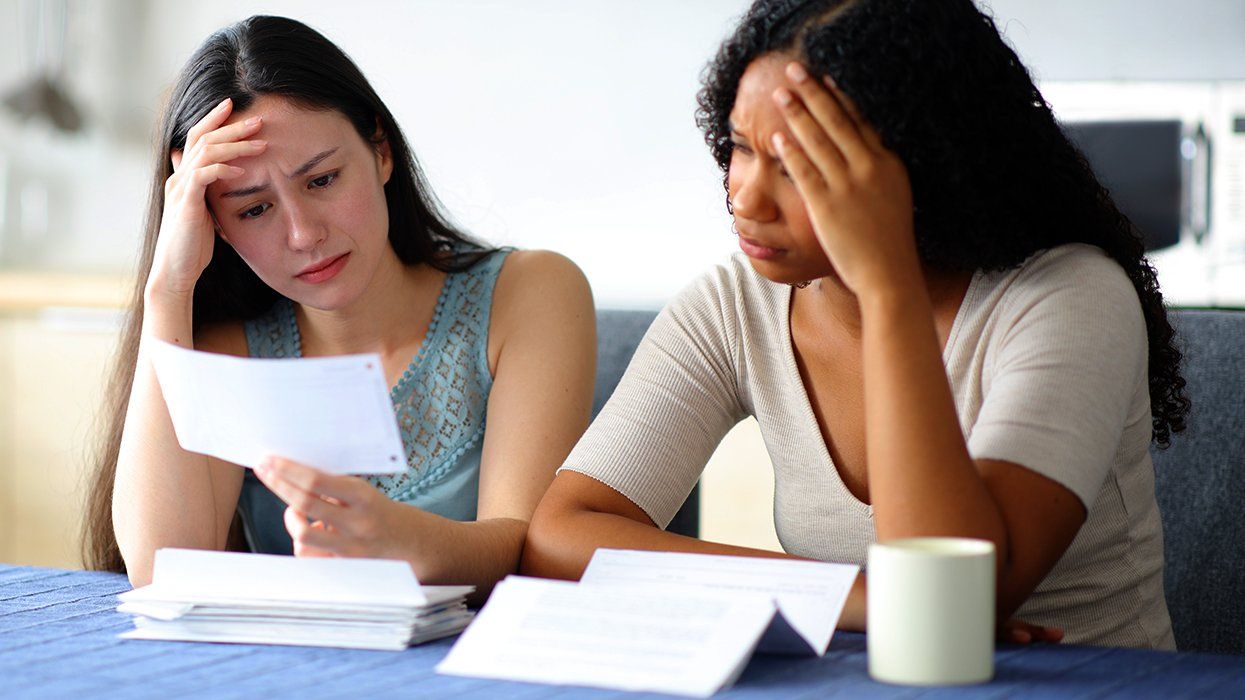Race and education level factor into poverty among lesbians and bisexual women — but there are some differences between the groups, and that has implications for public policy, according to a new study.
Keep up with the latest in LGBTQ+ news and politics. Sign up for The Advocate's email newsletter.
“Research has demonstrated that sexual minority populations are more likely to experience poverty than sexual majority populations and that many of these disparities are driven by specific sexual minority subgroups, including cisgender bisexual women,” says the introduction to the study, published in Women’s Health Issues. “Yet, little is known about the factors associated with economic insecurity that explain the intragroup differences in economic outcomes among sexual minorities, particularly among those of the same gender (i.e., cisgender bisexual vs. lesbian women).”
It's a myth that affluent white men are the defining demographic of the LGBTQ+ community, the authors say. Research based on U.S. Census data, available since 2011, has indicated that female couples have significantly lower incomes than male ones, they point out. But the helpfulness of this data “was limited by its defining of sexual minorities by who they were partnered with in one moment of time,” they say.
To provide a more nuanced picture, the researchers looked at a sample of cisgender sexual minority adults, including 324 lesbians and 355 bi women, who had participated in the Generations survey, which tracked three generations of lesbian, gay, and bisexual Americans.
They found that bisexual women were more likely to live in poverty, at 53.68 percent, than lesbians, at 40.82 percent. About a quarter of both groups had children, but bi women were more likely to have children under 18 than lesbians.
Lesbians were more likely to have a masculine gender expression than bi women and were more likely to be out to their coworkers. “Although the two groups of women reported similar levels of felt stigma and internalized homophobia, bisexual women reported higher levels of everyday discrimination and psychological distress,” the study says.
“Race/ethnicity (i.e., identifying as Black) and education (i.e., having a high school diploma or less) were associated with living in poverty for both groups,” the authors note. “The role of minority stressors, such as outness, everyday discrimination, and internalized homophobia did not strongly predict poverty for either group. However, reports of experienced stigma related to one’s sexual orientation and masculine gender expression were associated with poverty among lesbians but not for bisexual women, and having children was a strong predictor of poverty for bisexual women but not lesbians.” The findings about race and education level were unsurprising, according to the researchers.
Overall, they say, “These findings suggest that policy, advocacy, and service interventions should consider tailoring approaches to address poverty for bisexual and lesbian women differently.”
The study was written by Bianca D.M. Wilson, an associate professor in the Department of Social Welfare at the Luskin School of Public Affairs at the University of California, Los Angeles, and an affiliate faculty member of the California Center for Population Research at UCLA; Andy Lin, manager and senior statistical consultant in UCLA’s Office of Advanced Research Computing; and Lauren J.A. Bouton, policy fellow and research data analyst at the Williams Institute at the UCLA School of Law.















Charlie Kirk DID say stoning gay people was the 'perfect law' — and these other heinous quotes
These are some of his worst comments about LGBTQ+ people made by Charlie Kirk.